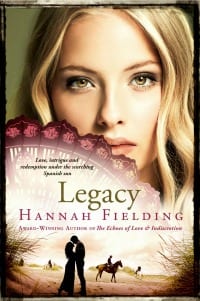Writing Romantic heroes
Writing Romantic heroes
Writing Romantic heroes
-
Hannah
-
Hannah

What is the timeless appeal of a literary hero like Fitzwilliam Darcy in Jane Austen’s Pride and Prejudice? The answer: he is the archetypal Romantic hero.
Rewind to the first half of the 19th century. Europe is going through great changes: the Industrial Revolution is transforming forever how people live and work, the Age of Enlightenment is introducing new ways of thinking. The result is that the traditional hero, the man who conformed and upheld social order, was pushed aside by a new, far more exciting and attractive man: the Romantic hero.
The Romantic hero has these qualities:
• He is an individual, a maverick, a self-made man who is unafraid to stand alone (consequently, he may be rejected and ostracised by society, and deemed defiant or arrogant).
• He is introspective, a thinker, which may render him brooding or misanthropic or melancholic.
• He is drawn to nature and has an interest in and respect for history.
• He is driven by emotion, and is a deeply impassioned man.
Darcy is, of course, a classic example, but there are many more in literature, such as Heathcliff from Emily Brontë’s Wuthering Heights and Rochester from Charlotte Brontë’s Jane Eyre (Byronic heroes, in fact, so-named after Lord Byron). But you don’t have to look back to 19th-century literature to find Romantic heroes; they abound in modern-day novels. Mark Darcy of Bridget Jones’s Diary is an obvious example, but in fact Romantic heroes are to be found in all kinds of books – Harry Potter is one such hero.
Romantic heroes are prominent in fiction quite simply because we identify with them and connect to them; they make us aspire and dream and hope. My own heroes are inspired by the Romantic heroes I have ‘met’ in literary worlds rather than people I have met in the real world. Although each is different in his own way, they can all be defined as Romantic heroes.
These men are determined individuals who have made their own way in the world: they are very successful in their fields. Ruy of Legacy, for example, has set up a cancer-treatment clinic that is pioneering complementary therapies; Damian of Aphrodite’s Tears is the leader of a Greek island; Umberto of Concerto soared to the giddy heights of fame as a pianist composer.

Legacy: love, intrigue and redemption under the scorching Spanish sun.
Available to buy in my shop.
Although these heroes project auras of strength, resilience and power, as the heroines discover, they are men who have rich inner worlds of thought and emotion. Romantic heroes are typically mysterious, and my heroes carry heavy burdens in the form of secrets and heartbreaks that torment them.
Most of all, these men are passionate. They are men who feel very deeply and for whom the emotional landscape can be beautiful but also dark and treacherous. What matters most for them is love: only that can light the landscape and chase away the shadows.
I cannot imagine writing my heroes differently, writing a hero who is a conformist, for example, who is all about action, not thought, and who does not feel much of anything. Quelle horreur!
What do you think of Romantic heroes? Are they very far removed from reality? Why do we connect so well to their characters? Who is your favourite Romantic literary hero? I would love to hear your thoughts.